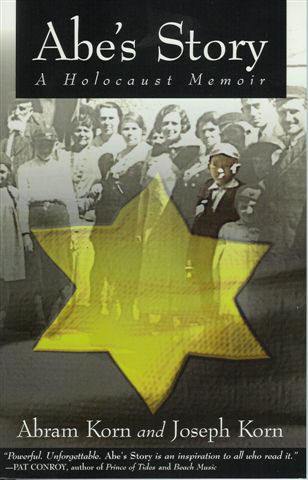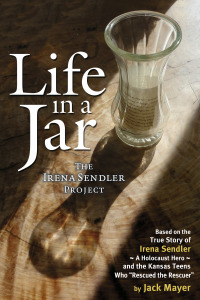Return to Witnesses
Homosexuals in the Holocaust faced a disturbing reality, as an estimated 500,000 were killed. Coming out of the 1920’s which was a more open time for homosexuals in the Weimar Republic, that gave way to the brutality of the 1930’s and the Holocaust to come.
Homosexuality and the Holocaust – Bibliography
Gays, the Holocaust, and the Pink Triangle

Homosexuals in the Holocaust
“A few remarks are in order about the various sex relationships in concentration camps. I start out with the homosexuals since they were accorded a special category among the inmates and `merited’ a separate, pink triangle. …
Very little has been written about the tens of thousands of homosexuals who were the damnedest of the damned, the outcasts among the outcasts in the concentration camps.
There are really only estimates of figures. During the twelve years of Nazi rule, nearly 50,000 were convicted of the crime of homosexuality.
The majority ended up in concentration camps, and virtually all of them perished. According to a recent study, `at least 500,000 gays died in the Holocaust.’
As Stefan Lorant observed in 1935, the homosexuals `lived in a dream’, hoping that the heyday of gays in Germany of the 1920s would last forever. Their awakening was terrible. Yet, the few survivors among them did not qualify for postwar restitution as the Jews or the politicals, because as homosexuals they were outside the law.
Homosexuality and German Law
By German law, homosexuality was a crime. After the prison sentences most homosexuals were automatically shipped to concentration camps.
In 1935, a new law legalized the `compulsory sterilization (often in fact castration) of homosexuals.’
A special section of the Gestapo dealt with them. Along with epileptics, schizophrenics and other `degenerates’, they were being eliminated.
Yet homosexuality was still so widespread that in 1942 the death penalty was imposed for it in the army and the SS.
In concentration camps, some pink triangles became concubines of male Kapos or other men in supervisory positions among the inmates. They were known as doll boys; this brought them certain protection while the love affair lasted.
The pink triangles were constantly abused by the SS, camp officials and fellow prisoners. They were seldom called other names than arse-holes, shitty queers or bum-fuckers.
They were allowed to talk only to each other, they had to sleep with the lights on and with hands above their blankets.
These people were not child molesters; those were considered professional criminals, green triangles.
While men with pink triangles were given the hardest jobs and were being constantly abused for their admitted sexual preference, considerable numbers of `normal’ men engaged in homosexual acts with impunity _ that was an emergency outlet.
This double standard was an additional psychological burden for the pink triangles.
The SS considered it great sport to taunt and torture the homosexuals.
The camp commander at Flossenburg often ordered them flogged; as the victims were screaming, he `was panting with excitement, and masturbated wildly in his trousers until he came,’ unperturbed by the hundreds of onlookers.
A sixty-year-old gay priest was beaten over his sexual organs by the SS and told: `You randy old rat-bag, you can piss with your arse-hole in the future.’
He could not, for he died the next day.
Eyewitnesses tell of homosexuals being tortured to death by tickling, by having their testicles immersed alternately into hot and icy water, by having a broomstick pushed into their anus.
Himmler, who wanted to eradicate homosexuals `root and branch’, had the idea to `cure’ them by mandatory visits to the camp brothel at Flossenburg.
Ten Ravensbruck women provided the services with little success. The women here also were told that they would go free after six months, but instead they were shipped to Auschwitz.
The pink triangles worked in the clay pits of Sachsenhausen, the quarries of Buchenwald, Flossenburg and Mauthausen; they shoveled snow with their bare hands in Auschwitz and elsewhere; they were used as living targets at the firing range; they had the dirtiest jobs in all camps.
Towards the end of the war, they were told that they would be released if they let themselves be castrated.
The ones who agreed were shipped to the infamous Dirlwanger penal division on the Russian front. ”
Kogon, Eugen. “The Theory and Practice of Hell” (New York: Ferrar, Straus, 1950), p.38
Rector, Frank. “The Nazi Extermination of Homosexuals” (New York: Stein and Day, 1981), p.116
Lorant, Stefan. “I Was Hitler’s Prisoner” (New York: G.P. Putnam’s Sons, 1935), p.8
Heger, Heinz. “The Men with the Pink Triangle” (Boston: Alyson, 1980) , p.12. This is a unique memoir of an Austrian who spent six years in Sachsenhausen and Flossenburg, surviving as a lover of camp kapos, and ultimately as one of the very few kapos with a pink triangle.
Rector, p. 144
Heger, p.56
Ibid., p.42
Ibid., p.82-83
Ibid., p.96
Ibid., p.98
Extracted from “WOMEN IN THE RESISTANCE AND IN THE HOLOCAUST: THE VOICES OF EYEWITNESSES” Edited and introduced by Vera Laska. Greenwood Press, Westport & London, 1983. LOC 82-12018, ISBN 0-313-23457-4
Related Articles
Homosexuality and the Holocaust – Bibliography
Triangles and Tribulations: The Politics of Nazi Symbols
Return to Witnesses



